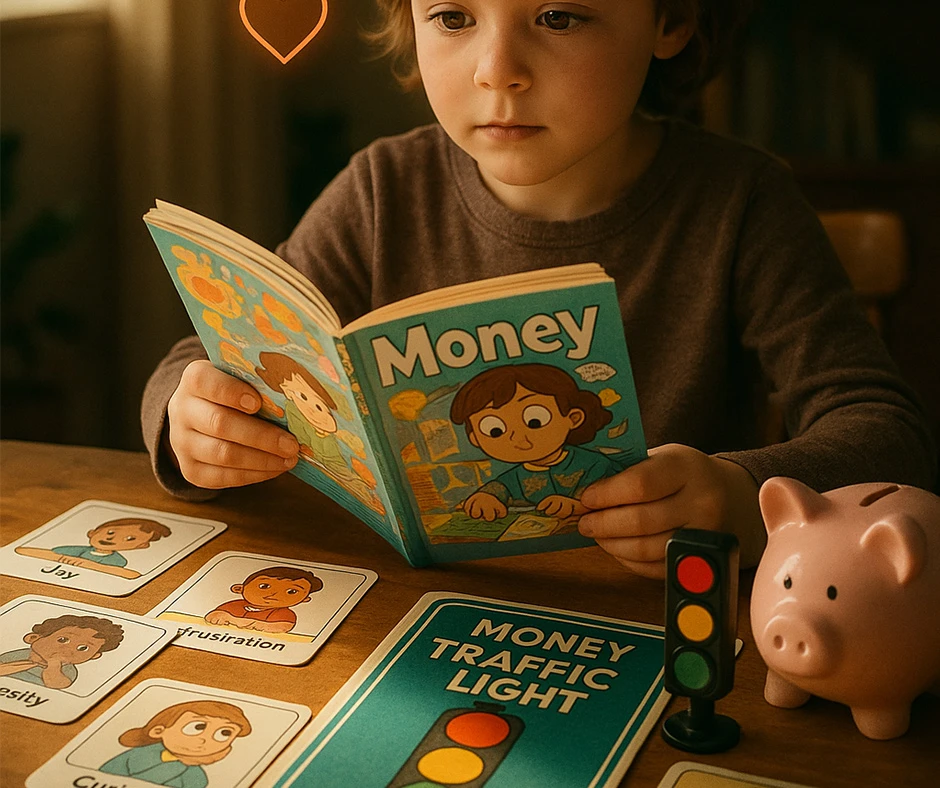< Back to Blog
Alfabetización emocional para niños
La clave para la inteligencia financiera

“You can’t make intelligent decisions if you don’t know how you feel.” — Dr. Lisa Feldman Barrett
Children don't just need rules to manage their money. They need tools to recognize their emotions before spending.
Why emotional awareness is more important than smart financial decisions
Financial decisions are emotional rather than logical. Cambridge research shows that emotional intelligence in children predicts financial behavior in adulthood.
How “Be a Real Hero” fosters financial emotional literacy
- “Impulsive Monster vs. Saved Hero” comic (page 7): Identify emotional triggers.
- “Money Traffic Light” Game (page 8): Connect emotions with shopping and expand your vocabulary.
- Reflection “Good Debt vs. Bad Debt” (page 14): explores the guilt, hope, and generosity behind decisions.
A scientifically backed view: Emotions drive children's financial literacy
The CFPB confirms that even 6-year-olds associate feelings with saving, spending, and waiting. Cultivating emotional self-regulation fosters better financial decision-making and confidence.
What parents observe when emotional literacy grows
| What your child earns | What you experience at home |
| The emotional language linked to money | Less tantrums and more reflection |
| Be aware before spending | Talk more easily about wants versus needs |
| The confidence in saying “not yet” | A calmer and more aware child |
| Pride in wise decisions | Peace of mind seeing growth |
Bottom line: Emotional intelligence is synonymous with financial strength. Start on page 7 or 14 and raise self-aware children, one story at a time.






